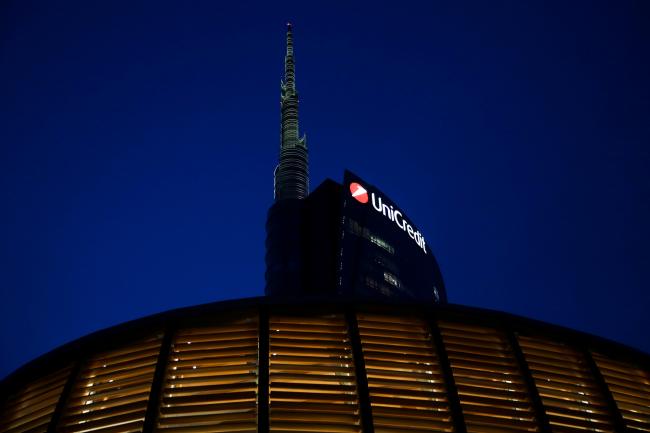(Bloomberg) -- Italy’s UniCredit SpA (MI:CRDI) said it’s been “paying particular attention” to geopolitical risks in Turkey, where the tumbling lira is driving down the value of its local banking venture.
“The credit-led growth model seems to be running out of steam,” while a sharp rise in funding costs forced private and foreign banks to slow lending, UniCredit said about Turkey in its first-half financial report, published Friday as European bank stocks with exposure to the country tumbled. The bank’s risk-management group is also especially focused on Russia, Brexit and challenges from regulation, the report said.
UniCredit jointly controls Turkey’s Yapi Kredi Bankasi AS, part of a banking empire that sprawls over 14 countries, serving 25 million clients. The Italian bank injected more money into Yapi Kredi less than four months ago as part of a rights offer that was worth about $1 billion at the time. The lira has plummeted against the dollar since then as Turkish tensions with the U.S. worsened and President Recep Tayyip Erdogan criticized the prospect of interest-rate increases to defend the currency.
European bank stocks slid Friday as Turkey’s lira dropped by as much as 24 percent to a record low of more than 6.5 to the dollar. UniCredit fell as much as 6.7 percent, the most in more than 2 months, and was down 5 percent as of 3 p.m. in Milan trading. The stock is the worst performer on Italian benchmark FTSE MIB index and the second-worst on the 48-member STOXX Europe 600 Banks Index.
The Financial Times reported that the European Central Bank was concerned about the Turkish exposure of some lenders, including UniCredit, Spain’s BBVA (MC:BBVA) and BNP Paribas (PA:BNPP) of France. The watchdog doesn’t see the situation as critical yet, the FT said.
Earlier this week, UniCredit Chief Executive Officer Jean Pierre Mustier played down the effects of the Turkish crisis on earnings, calling the impact of the lira moves “very small” and praising Yapi Kredi’s performance. UniCredit is “in Turkey for the long term, going through cycles,” Mustier said to analysts on an Aug. 7 conference call.
UniCredit bought a stake in Yapi Kredi with local partner Koc Holding AS in 2005. The unit held 7 percent of UniCredit’s risk-weighted assets as of June 30. The contribution of Yapi Kredi to UniCredit’s second-quarter earnings was up 27.5% from a year earlier excluding currency effects. Counting the lira’s slide, it was down 3.4 percent, the bank said on Aug. 7.
The first-half report is a supplement to the bank’s second-quarter results, which were released Tuesday and beat analysts’ estimates. A spokeswoman at the Italian lender declined to comment on the report, and referred to Mustier’s comments earlier this week.
On Russia, despite the “aggravation of the stalemate” with the West that could lead to further sanctions, the nation’s economy has shown improvement, UniCredit said. However, sanctions, tariffs and moves by the Russian government are still risks, it said.
